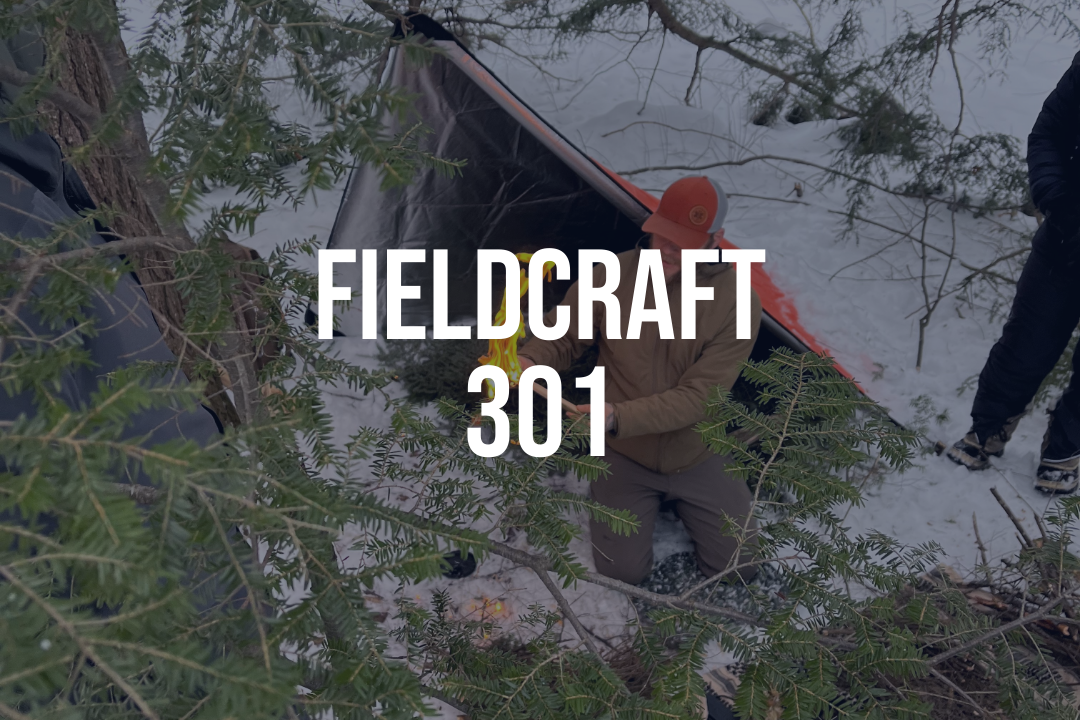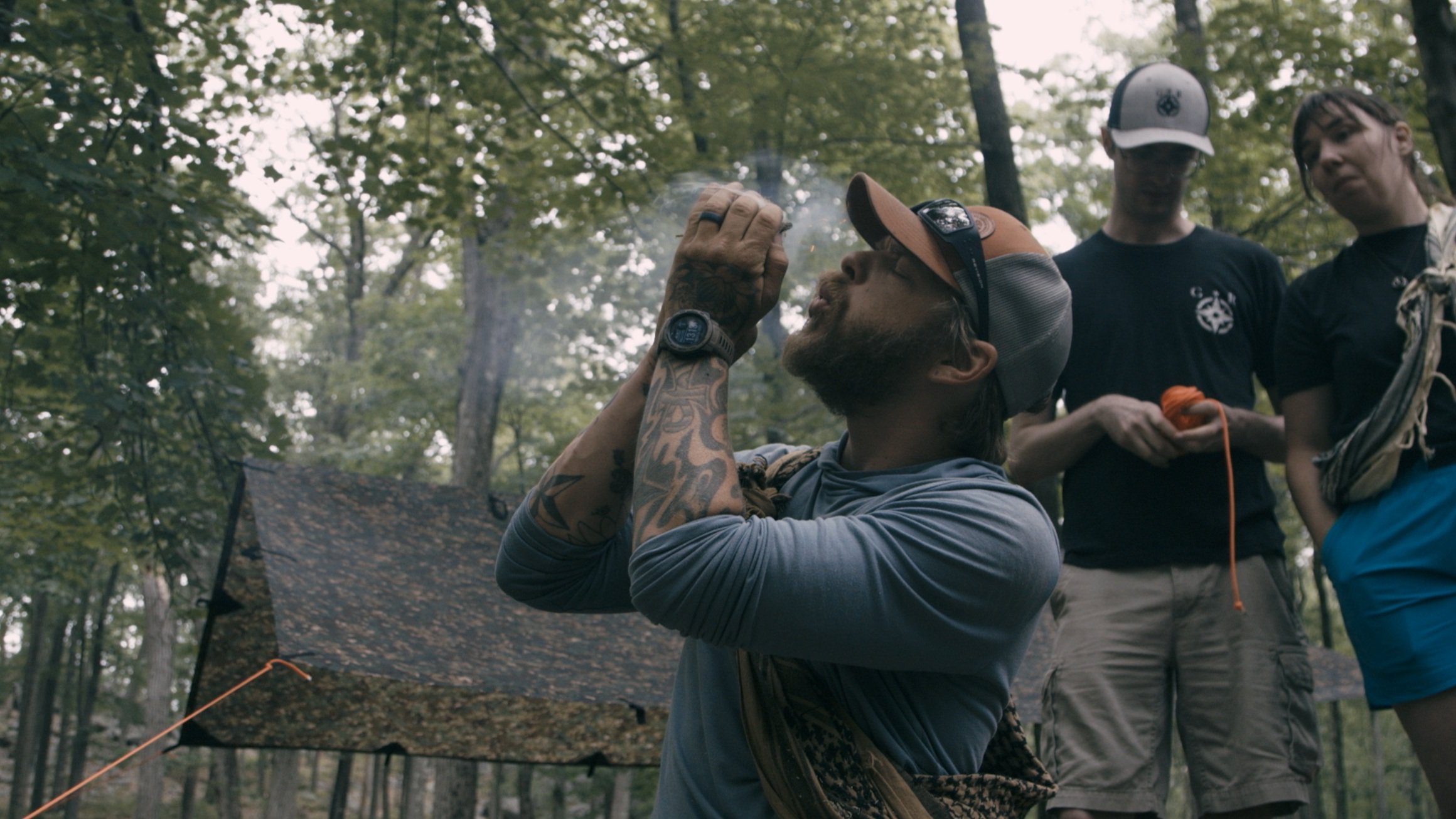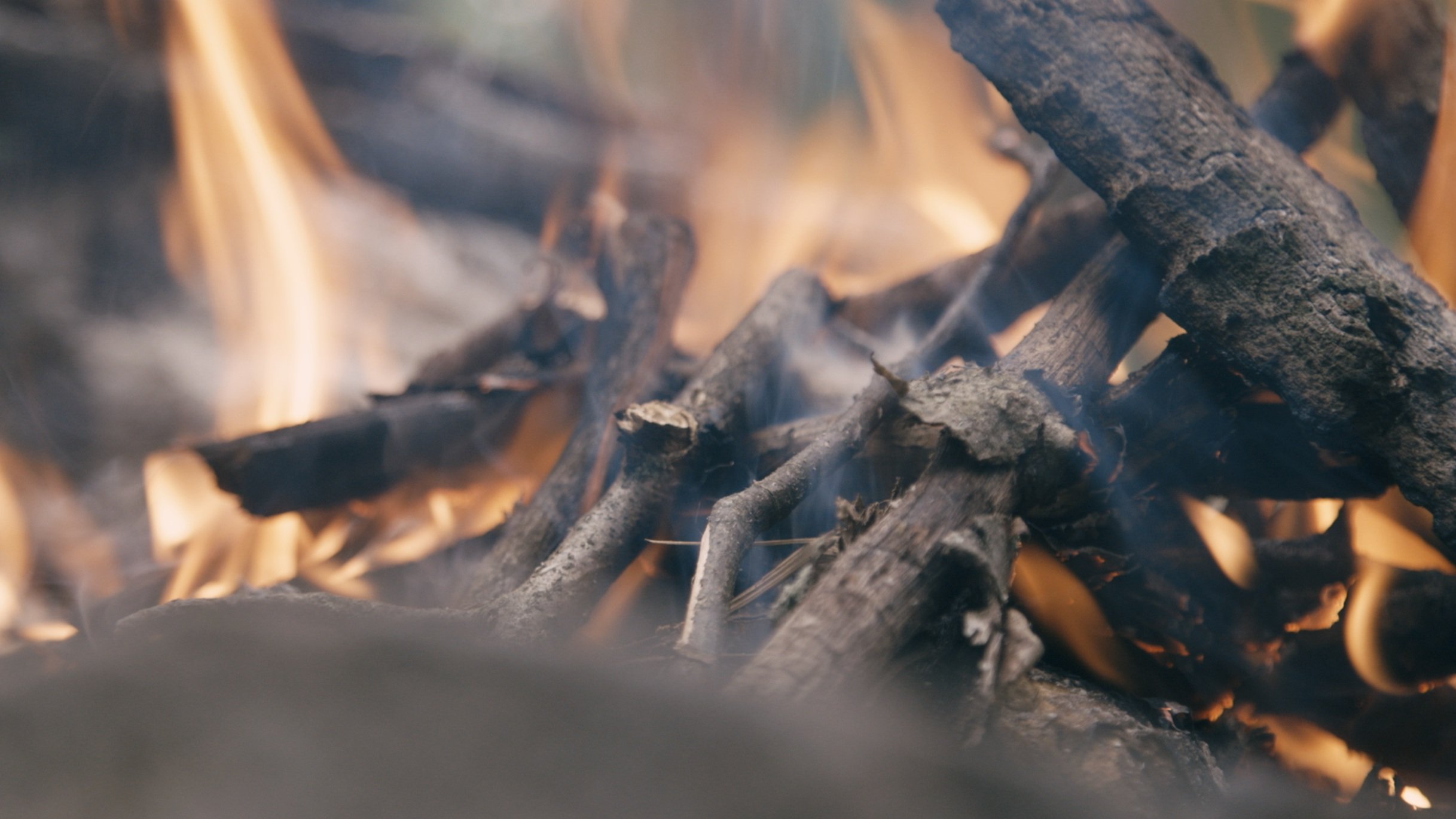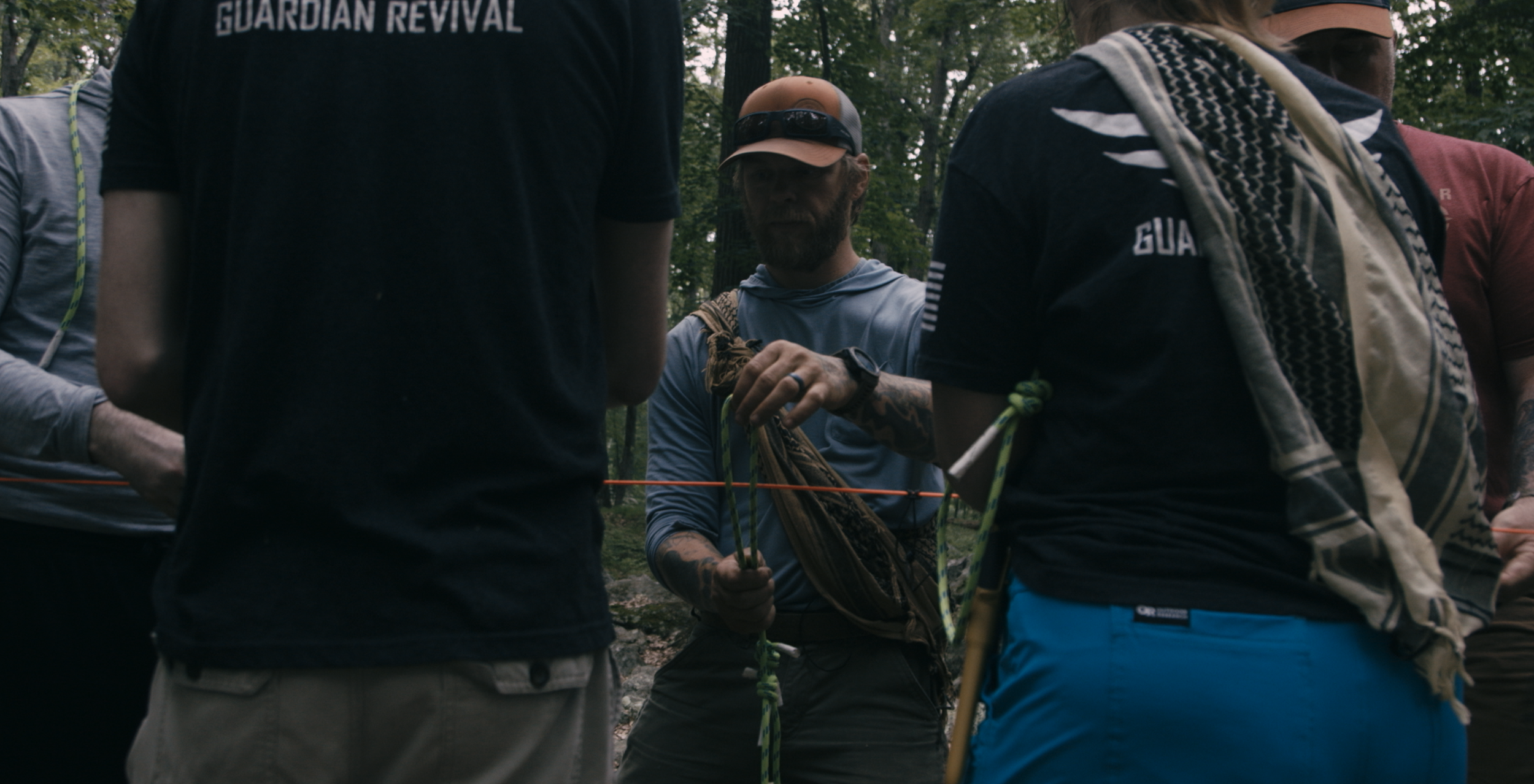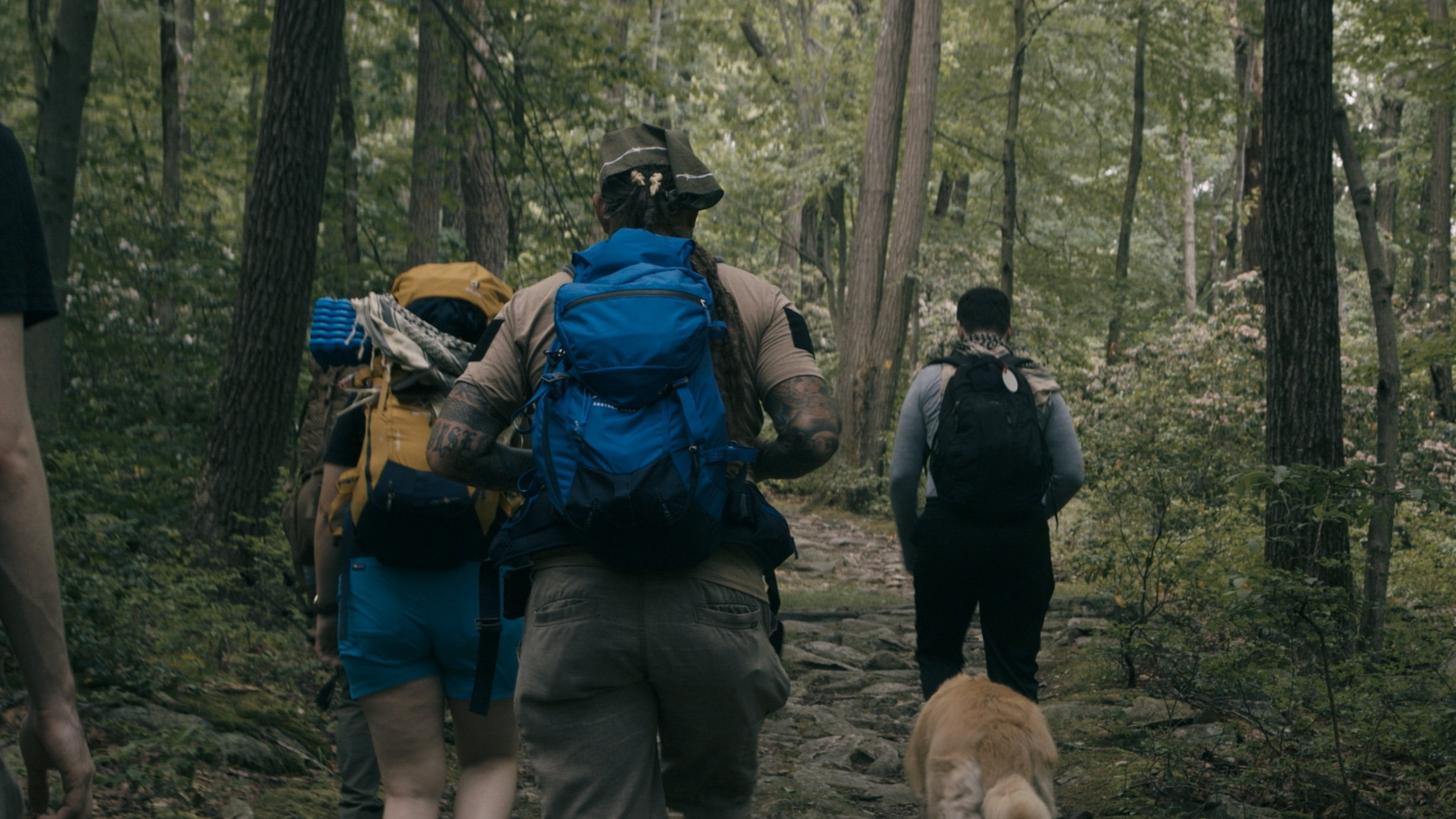Survival Skills in the Wild: An Introduction to Fieldcraft
Fieldcraft — the skills and knowledge required for survival in the wild — is an intricate blend of observation, adaptability, and resourcefulness.
It’s all about understanding nature, honing your instincts, and mastering the art of thriving in the great outdoors.
Essential for anyone operating in outdoor environments — often interpreted as military personnel and survivalists, fieldcraft is also beneficial for outdoor enthusiasts enjoying camping, hiking, and hunting.
Learn how to navigate the outdoors and survive in difficult situations: fieldcraft can take your experience in nature from you vs the wild to you thriving in the wild.
Learn Fieldcraft with Another Summit
Our Another Summit outdoor adventure program has partnered with Jon Turner, a Marine Corps Veteran and founder of Accipiter Fieldcraft, to teach a series of weekend fieldcraft survival skills courses in the Hudson Valley.
Our fieldcraft courses cover the methods of basic bushcraft & survival in the wilderness using modern and primitive resources. Jon teaches us the skills using the acronym SWFFT: Shelter, Water, Fire, Food, and Tools.
Open (and free) to guardians (veterans & first responders). Family / friends may attend with a guardian.
We offer 101 and 201 courses — 101 is open to everyone (beginners very welcome!), but the 201 course is just for folks who've attended the 101 course (or any of last year's workshops) or already have experience with fieldcraft.
101 is an introduction course, so it'll focus on the basic knowledge & skills everyone needs outdoors:
The essentials (SWFFT - Shelter, Water, Fire, Food, Tools)
Knots
Tools
How to build & start a fire
Types of tarp structures
And more, with a focus on the use of modern tools
201 is more in-depth, and has people learning more skills and focusing on what to do with fewer tools on-hand, for example:
How to create your own tools
Brush shelters
Starting fires with self-made tools
Traps
Understanding Fieldcraft: The Basics
From learning how to start a fire to mastering essential navigation techniques, basic fieldcraft knowledge provides fundamental outdoor survival skills that can be invaluable in the wilderness:
Stealth and Camouflage: Learning to blend into your surroundings and move silently to avoid detection by wildlife or potential threats.
Observation: Developing keen powers of observation to understand the environment, its inhabitants, and potential dangers.
Tracking: The ability to read and interpret signs, tracks, and other indicators of animal or human presence.
Navigation: Mastery of map reading, compass use, and orientation techniques to find your way in unfamiliar terrain.
Survival Skills: Knowledge of how to find food, water, and shelter, as well as how to make fire and administer basic first aid.
Camplife: Setting up and maintaining a campsite, including shelter construction, cooking, and sanitation.
Situational Awareness: Staying aware of your surroundings and adapting to changing circumstances.
Communication: Using non-verbal signals and codes to communicate with others without alerting potential threats.
Environmental Ethics: Understanding and practicing responsible outdoor behavior to minimize your impact on the natural world.
Next-Level Knowledge: The Medicinal and Functional Properties of Plants
Aside from the basics, a more in-depth knowledge of fieldcraft involves an understanding of the medicinal and functional properties of plants. When you’re in the wild, plants can serve as more than just your next meal — they can be powerful allies for health and survival:
Medicinal Plants: Certain plants are useful for treating injuries and illnesses in the wild. For example, the plantain leaf can be used to soothe insect bites and stings, while yarrow has natural antiseptic properties and can be used as a wound dressing.
Edible Plants: Identify edible plants, like dandelion greens, cattail roots, and various berries, providing a source of nourishment in the wild.
Natural Cordage: Certain plants, like nettles and yucca, can be processed to create strong and flexible cordage. This skill is invaluable for constructing shelters, traps, and tools.
Firemaking: Firemaking techniques can involve using natural materials, such as fire boards and spindle sticks from specific plants, to create friction fires.
Insect Repellents: Some plants, like citronella and lavender, have natural insect-repelling properties. Make homemade insect repellents from these plants to ward off pesky insects and keep themselves from being covered in bites.
Toilet Paper Alternatives: In the absence of toilet paper, large leaves from certain plants, like mullein or lamb's ear, can serve as effective natural alternatives for personal hygiene
The Benefits of Fieldcraft
Learning fieldcraft offers both practical and personal benefits. These skills go far beyond simply surviving in the wild and can enrich various aspects of your life.
Survival Skills: The ability to find food, water, and shelter, make fire, and administer first aid can be lifesaving in emergency situations, whether you're lost in the wilderness or facing unexpected challenges during a camping trip.
Increased Confidence: Fieldcraft builds self-reliance and confidence in your abilities. Knowing you can handle yourself in the great outdoors can boost your overall self-esteem.
Connection to Nature: Fieldcraft fosters a deeper connection with the natural world. As you learn to observe, understand, and respect nature, you'll develop a greater appreciation for its beauty and complexity.
Problem-Solving and Adaptability: These skills encourage creative problem-solving and adaptability, also applicable to professional challenges and personal growth.
Enhanced Observation: Improved observation skills can benefit your everyday life, helping you become more attuned to your surroundings, notice details that others might miss, and enhance your situational awareness.
Camplife Skills: Creating comfortable and functional outdoor living spaces are invaluable skills for campers, hikers, and anyone who enjoys spending time in nature.
Physical Fitness: Hiking, tracking, and shelter-building improve physical fitness.
Emotional Resilience: Adapting to adverse conditions and navigating unfamiliar terrain reinforces emotional resilience, which can translate into greater emotional strength in everyday life.
Community and Teamwork: Our fieldcraft courses are conducted in groups, fostering a sense of community and teamwork.
Environmental Stewardship: Fieldcraft emphasizes responsible outdoor behavior, teaching you to minimize your impact on the environment and contribute to a more sustainable and eco-friendly lifestyle.
Embracing the Wild: Unleash Your Potential Through Fieldcraft
Fieldcraft isn’t just a set of survival skills — it’s a journey of self-discovery and connection with the natural world. Whether you’re an outdoor enthusiast, an adventurer, or simply someone looking to build up confidence and resilience, entering the world of fieldcraft can be a transformative experience.
By learning the art of fieldcraft, you not only prepare yourself for life’s unexpected challenges but also deepen your appreciation for the beauty and complexities of the great outdoors.
Join Our upcoming events
Another Summit organizes and leads outdoor adventure activities — such as walking, hiking, backpacking, and paddling — in the Hudson Valley Region of New York & across the Northeast.
We welcome guardians (veterans & first responders) of all ages and ability levels, including those with accessibility needs, and we work to facilitate access throughout the Hudson Valley and NYC area.
Our outdoor adventures range from beginner to advanced difficulty levels and are led by certified outdoor leaders. Another Summit’s difficulty rating system considers multiple factors, including elevation, terrain, and frequency of rests.




